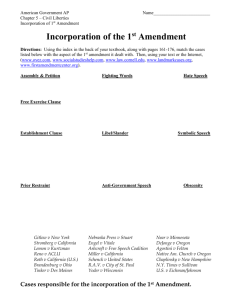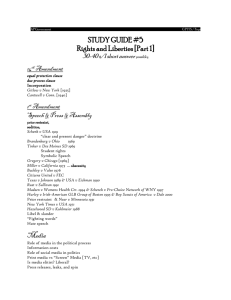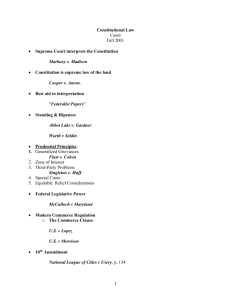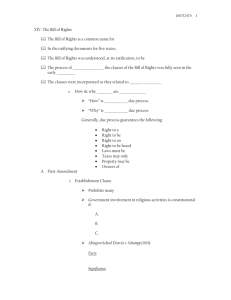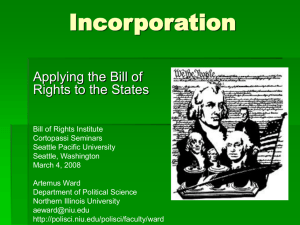Courts and Selective Incorporation Barron vs. Baltimore (1833
advertisement
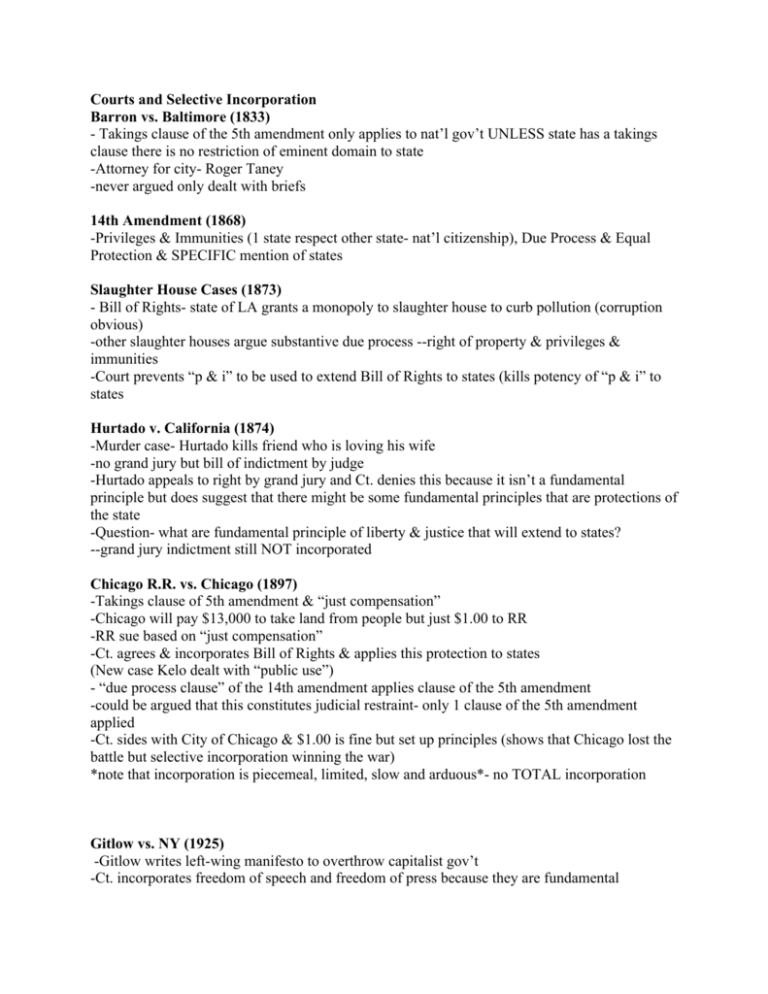
Courts and Selective Incorporation Barron vs. Baltimore (1833) - Takings clause of the 5th amendment only applies to nat’l gov’t UNLESS state has a takings clause there is no restriction of eminent domain to state -Attorney for city- Roger Taney -never argued only dealt with briefs 14th Amendment (1868) -Privileges & Immunities (1 state respect other state- nat’l citizenship), Due Process & Equal Protection & SPECIFIC mention of states Slaughter House Cases (1873) - Bill of Rights- state of LA grants a monopoly to slaughter house to curb pollution (corruption obvious) -other slaughter houses argue substantive due process --right of property & privileges & immunities -Court prevents “p & i” to be used to extend Bill of Rights to states (kills potency of “p & i” to states Hurtado v. California (1874) -Murder case- Hurtado kills friend who is loving his wife -no grand jury but bill of indictment by judge -Hurtado appeals to right by grand jury and Ct. denies this because it isn’t a fundamental principle but does suggest that there might be some fundamental principles that are protections of the state -Question- what are fundamental principle of liberty & justice that will extend to states? --grand jury indictment still NOT incorporated Chicago R.R. vs. Chicago (1897) -Takings clause of 5th amendment & “just compensation” -Chicago will pay $13,000 to take land from people but just $1.00 to RR -RR sue based on “just compensation” -Ct. agrees & incorporates Bill of Rights & applies this protection to states (New case Kelo dealt with “public use”) - “due process clause” of the 14th amendment applies clause of the 5th amendment -could be argued that this constitutes judicial restraint- only 1 clause of the 5th amendment applied -Ct. sides with City of Chicago & $1.00 is fine but set up principles (shows that Chicago lost the battle but selective incorporation winning the war) *note that incorporation is piecemeal, limited, slow and arduous*- no TOTAL incorporation Gitlow vs. NY (1925) -Gitlow writes left-wing manifesto to overthrow capitalist gov’t -Ct. incorporates freedom of speech and freedom of press because they are fundamental principles protected by the “due process clause” in the 14th amendment from infringement by states -Court DID NOT say the entire 1st amendment was incorporated -Gitlow loses because he crossed the line but establishes the ability to incorporate speech and press Palko Case (1937)- Palko v. Connecticut -Double Jeopardy and 5th amendment -convicted without confession for 2nd degree & retried with confession for 1st degree -Cts. said no because the right wasn’t explicit in ordered liberty? -No only rights explicit in ordered liberty are incorporated thus not a fundamental principle to apply to states -demonstrates slow, arduous, piecemeal of selective incorporation
